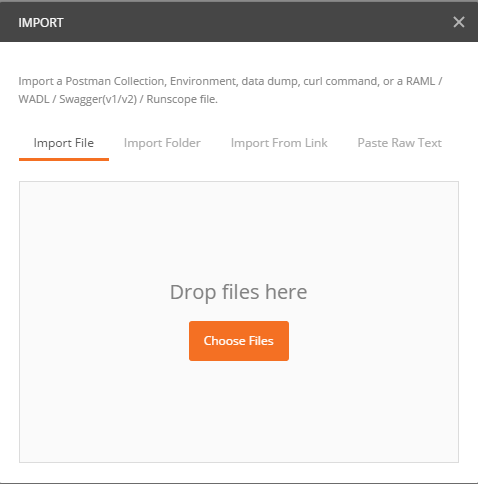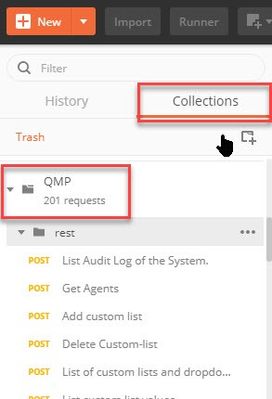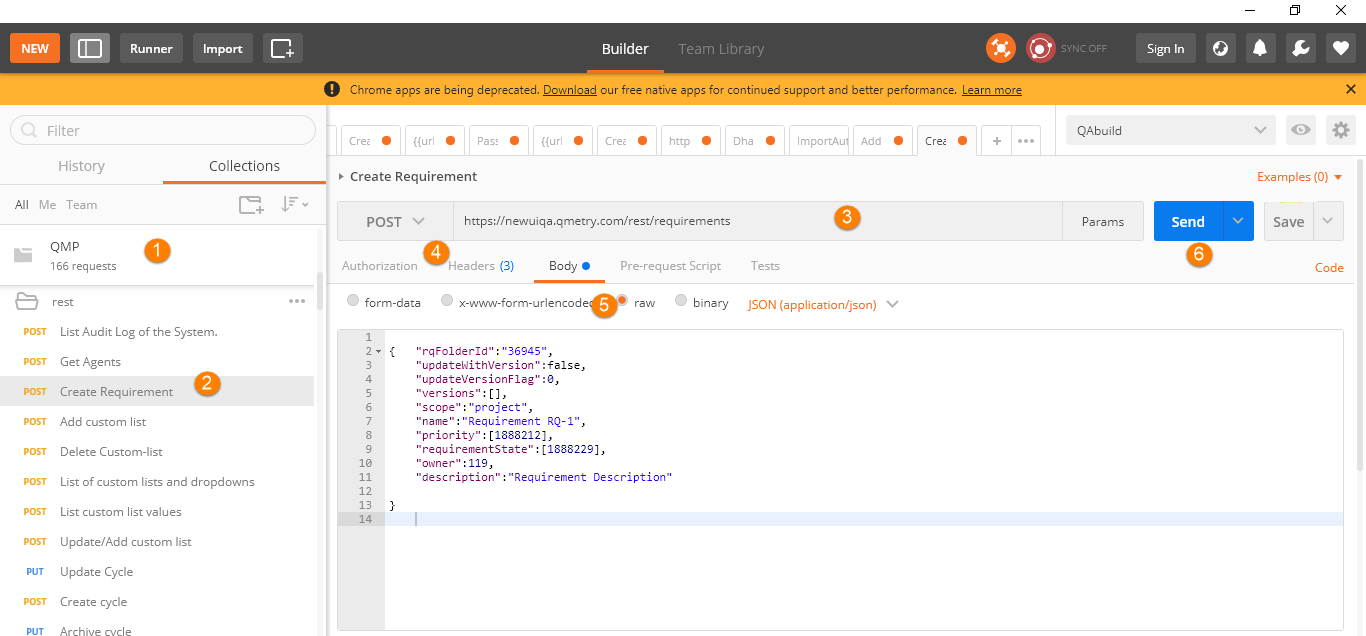Back to QMetry All Products Help Page
How to test QMetry Open REST API
- Download Postman application on Google Chrome.
- Open and log into the Postman application.
- Download the QMetry Swagger file for QTM v8.15.0. Swagger specifications are used for REST API documentation. You can import the swagger file into Postman to try out QMetry Open APIs.
Note: Swagger file pertaining to the latest QTM version will be available soon.
- Click on the Import button on the application header. The Import wizard opens.
- Import the swagger file into Postman, either by drag and drop the Swagger.json file to the Import File area above or choose the Swagger.json file to upload.
The next screen opens displaying the menu of API Bundle for QMP at left. Make sure you have selected the Collections tab.
The API Bundle contains REST APIs for multiple modules of QMetry Test Management.
Authentication
- Login to the QMetry Test Management.
- Go to Integration > Open API.
- Locate the Generate Open API section and click on 'Generate' to generate Open API Key.
This API Key will be used in the subsequent request.
Sample API Execution
1. Expand the collection QMP under the API bundle on the left. You can view the list of endpoints covered under the module.
2. Select the endpoint by clicking on it.
3. On the right pane, click the URL and insert API URL.
4. Insert Headers parameters as below. You can see the placeholder for parameter values. Replace the placeholder with the value you want to test the parameter with. You can use 'project' or 'scope' in the header. You can use project key/ project name/ project id/ default values when you pass 'project' as a header key.
5. Insert Body parameters. You can see the placeholder for parameter values. Replace the placeholder with the value you want to test the parameter with.
6. Click the Send button at right to send the request and get a response from QMetry server.
QMetry Open API Technical Documentation
Detailed documentation on QMetry Open API provides all the details a developer would need for each of the API calls that are supported.
Back to QMetry All Products Help Page





